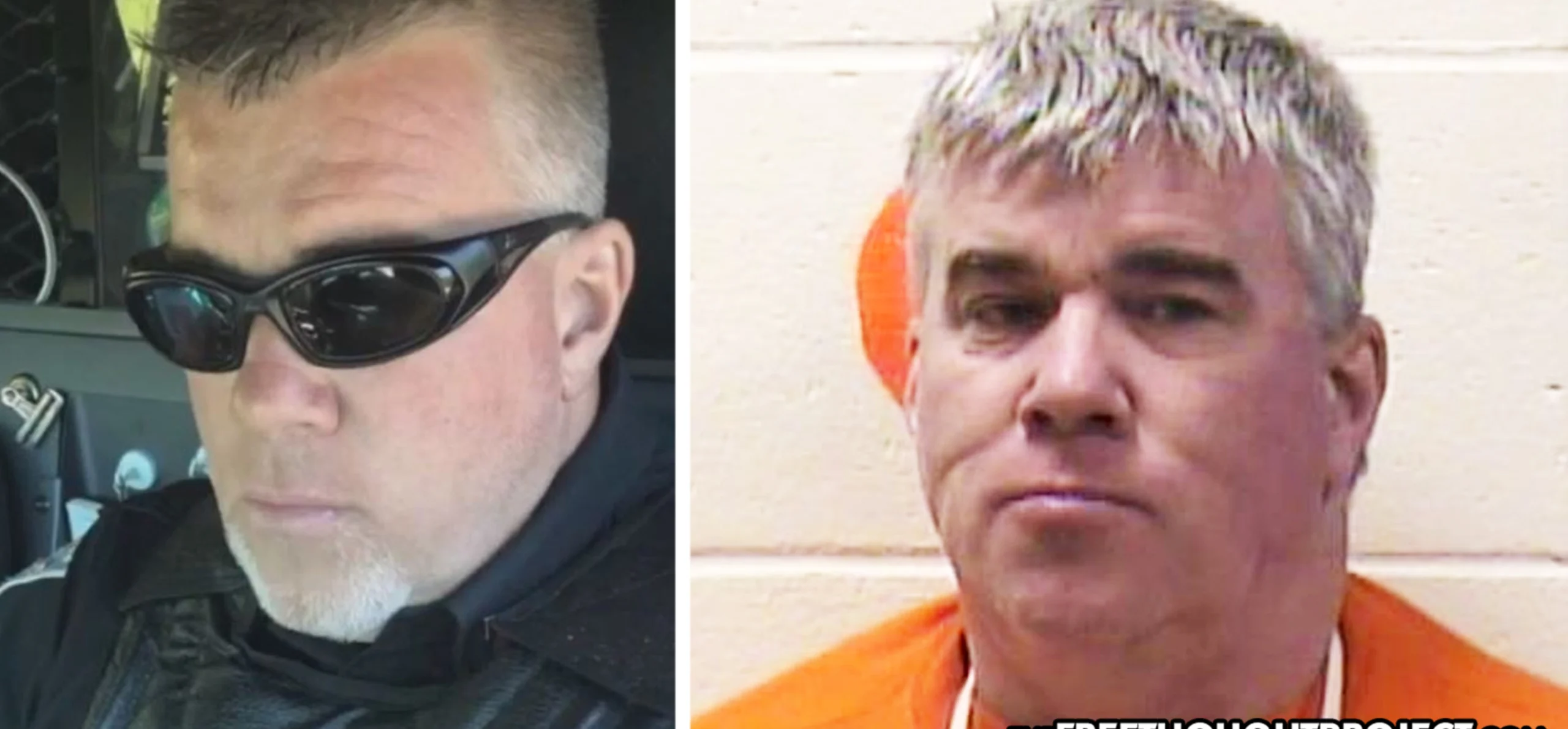When parents of children at Narraguagus Jr/Sr High School in Harrington saw officer Jeffrey Bishop’s car parked in front of the school, they likely felt secure knowing that a cop was “protecting” their children. But Bishop was protecting no one. Instead, he was selling them deadly fentanyl.
Bishop, 55, of Cherryfield is charged with four counts of aggravated furnishing of scheduled drugs, as well as one count of unlawful trafficking in Schedule W drugs in 2021. Under Maine law, Schedule W drugs are amphetamines, cocaine and its derivatives, heroin and similar opiates, and other drugs that are considered the most harmful.
After his arrest and subsequent investigation which found dozens of stolen guns at his home, Bishop would be slapped with a whopping 35 more charges.
In a plea deal in August, Bishop pleaded guilty to 14 felony charges ranging from drug trafficking and furnishing to stealing drugs to multiple counts of receiving stolen guns. The other 21 charges, many theft counts related to the guns, were dismissed, according to FOX 23.
This week, the law enforcement officer for nearly two decades was sentenced to 4 years in prison.
“I am here today to accept what I need to do,” Bishop said as he prayed with his family in the courthouse parking lot before sentencing. “I stand before you a very humble [and] a very broken man.”
Before he was arrested, likely knowing it was coming, Bishop submitted his resignation on Jan. 12, 2021, and his last day of employment was Jan. 30.
News Center Maine reports that according to the Maine Drug Enforcement Agency (MDEA), the charges were aggravated due to alleged trafficking within 1,000 feet of a school and alleged furnishing of the drugs to a minor.
“We are very surprised and concerned about the allegations against Mr. Bishop, as we are well aware that if they are proven, this is not just a black eye to our department but to all of law enforcement,” Bishop’s department said in a press release at the time. “We believe that all law enforcement officers must be held to a higher standard to keep our justice system above reproach.”
The investigation was launched after police busted a minor at the school who was in possession of multiple pills of hydrocodone and around 800 milligrams of fentanyl. According to the CDC, just 3 milligrams of fentanyl is enough to kill an average size adult male. This cop had no problem giving a child over 250 lethal doses of the drug.
Sylvia Moores, an adult customer of Bishop’s, was also arrested. She would later tell investigators Bishop would pick her up on duty and exchange sexual favors for drugs. According to court records, Moores met up with Bishop at least seven times to exchange sexual favors for pills and fentanyl. Each visit happened in his patrol car and netted the woman 20-25 pills according to investigators.
“This investigation revealed that he had been exchanging hydrocodone pills with the state’s witness for sexual favors,” State Assistant Attorney General John Risler said.
According to MCN,
On February 5, court documents report the brown powder found in possession of the hydrocodone pills was identified as fentanyl.
The investigation led to Bishop’s arrest at around 4:15 p.m. on Friday, Feb. 5. Bishop was arrested without incident in Harrington with the assistance of the Washington County Sheriff‘s Office and the Maine State Police Department.
Agents subsequently served a search warrant at Bishop’s Cherryfield home Friday evening, where agents said they seized additional evidence of drug trafficking, including 110 hydrocodone pills not prescribed to Bishop. The pills were found inside his police duty bag according to the court documents.
While the Free Thought Project doesn’t believe that any drugs should be illegal, we definitely don’t feel that children should be given these drugs. When a law enforcement officer is caught betraying the trust of the community and giving children lethal doses of a drug that kills tens of thousands of Americans every year, that officer deserves to be held accountable to the fullest extent.
Not surprisingly, Bishop told the court that it should be the opposite and that his law enforcement status should have given him privilege during his plea deal. He told the judge he was “baffled” why his background as a cop was used to give him a longer sentence instead of a shorter one.
“Why is being a member of law enforcement an aggravating factor?” Bishop said, clearly missing the point.
This article was originally featured at The Free Thought Project and is republished with permission.
































